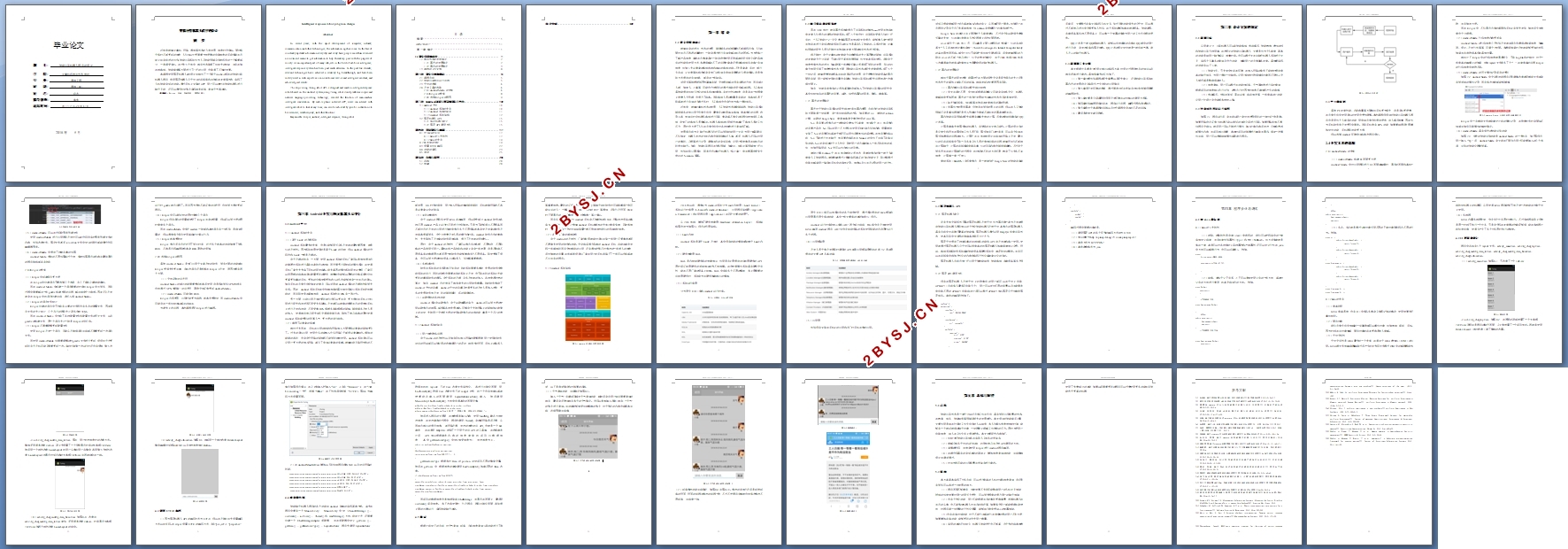智能应答机器人程序的设计
无需注册登录,支付后按照提示操作即可获取该资料.
智能应答机器人程序的设计(任务书,开题报告,论文11000字)
摘 要
近年来随着计算机,网络,通信等技术的飞速发展,信息时代来临。面对每天每时不断更新的信息,人们比以往更需要一种便捷的获取信息的手段帮助自己跟上社会前进的步伐。智能应答系统作为人工智能领域众多学科中的一个重要部分,一直颇受关注。在过去二十年中,相关技术取得了比较大的突破,并且在如在线客服、智能助理等方面进行了广泛的应用,也取得了不错的效果。
本课题使用图灵机器人API设计并制作了一个基于Android系统的智能应答机器人程序,利用图灵机器人云平台上的语料库和自然语言处理等技术,实现了人机智能会话的功能。通过手机上安装的APP,用户可以随时与智能机器人进行聊天互动,还可以通过特定指令实现浏览新闻,查询天气等功能。
关键词:Eclipse 安卓 智能应答 图灵机器人
Intelligent response robot program design
Abstract
In recent years, with the rapid development of computer, network, communication and other technologies, the information age has come. In the face of constantly updated information every day and every hour, people more than ever need a convenient means to get information to help them keep pace with the progress of society.As an important part of many subjects in the field of artificial intelligence, intelligent response system has been paid much attention. In the past two decades, relevant technologies have achieved a relatively big breakthrough, and have been widely used in such aspects as online customer service and intelligent assistant, and achieved good results.
This topic using Turing robot API is designed and made a intelligent response robots based on the Android system, using Turing robot cloud platforms corpus and natural language processing technology, realized the function of man-machine intelligent conversation. By mobile phone installed APP, users can interact with intelligent robot to chat at any time, can also be achieved by specific instructions to browse news, weather query, and other functions.
Keywords: Eclipse, android, intelligent response, Turing robot

目 录
摘要…………………………………………………………………………………I
ABSTRACT………………………………………………………………………II
第一章 绪论………………………………………………………………………1
1.1设计背景和意义 1
1.2相关技术的发展情况 2
1.2.1国外的发展情况 2
1.2.2国内的发展情况 3
1.3课题的工作安排 4
第二章 设计方案的制定 5
2.1课题目标 5
2.2智能应答程序运行流程 5
2.3平台的选择 6
2.4开发工具的选取 6
2.4.1Android Studio的优势 6
2.4.2Eclipse的优势 8
2.4.3选择Eclipse的原因 9
第三章 Android开发与图灵机器人云平台 10
3.1Android平台 10
3.1.1Android系统的优点 10
3.1.2Android系统的缺点 11
3.1.3 Android系统架构 12
3.2图灵机器人API 15
3.2.1图灵机器人简介 15
3.2.2图灵API调用方式 15
第四章 程序设计与调试 17
4.1对JAVA的认识 17
4.1.1JAVA的三大特性 17
4.1.2JAVA的优点 19
4.2UI界面的设计 19
4.3设置UTF-8编码 22
4.4功能的实现 23
4.5测试 25
第五章 总结与展望 28
5.1总结 28
5.2展望 28
参考文献 30
